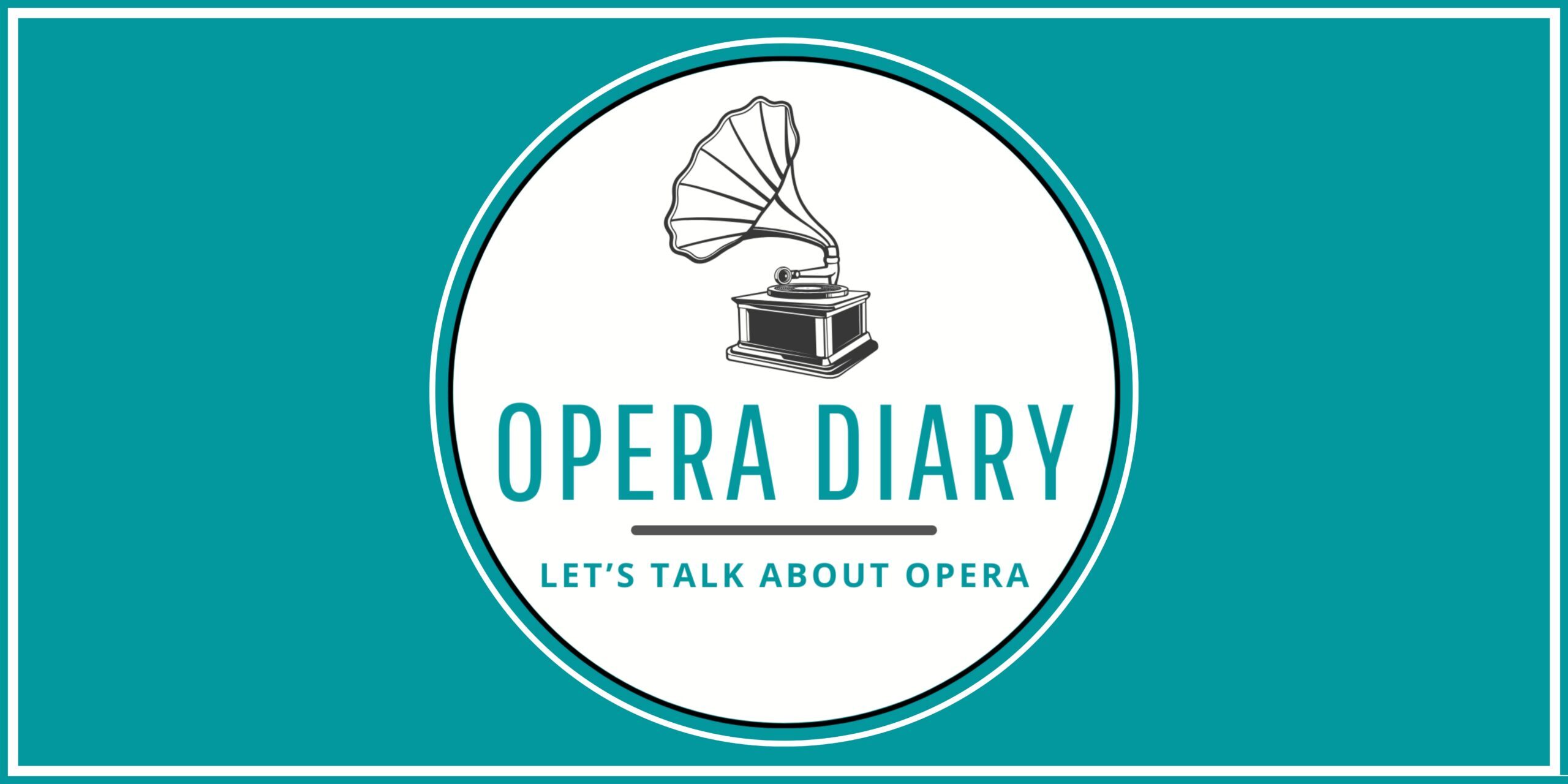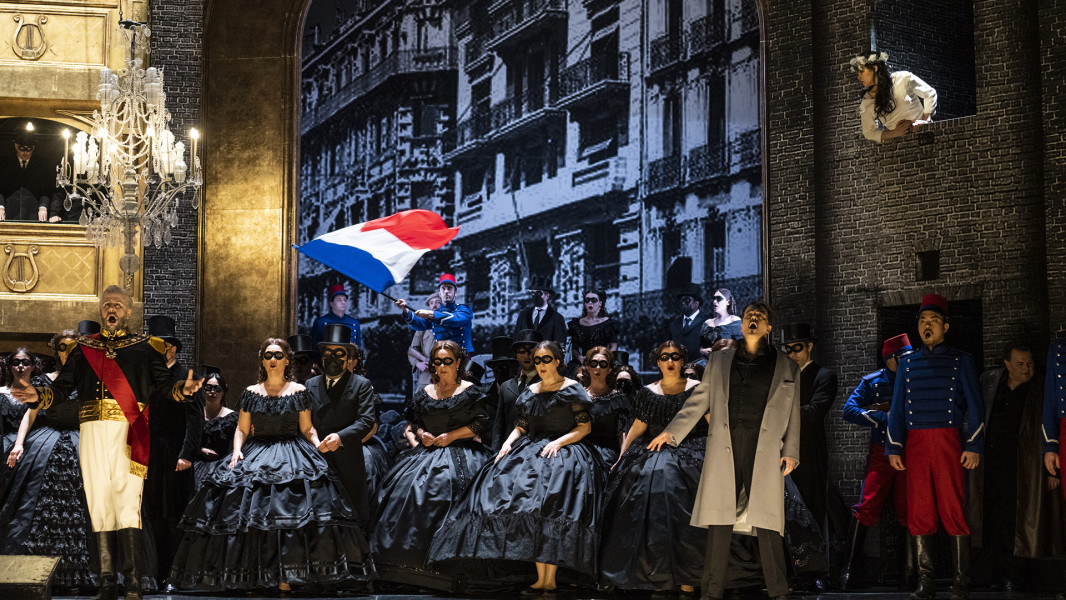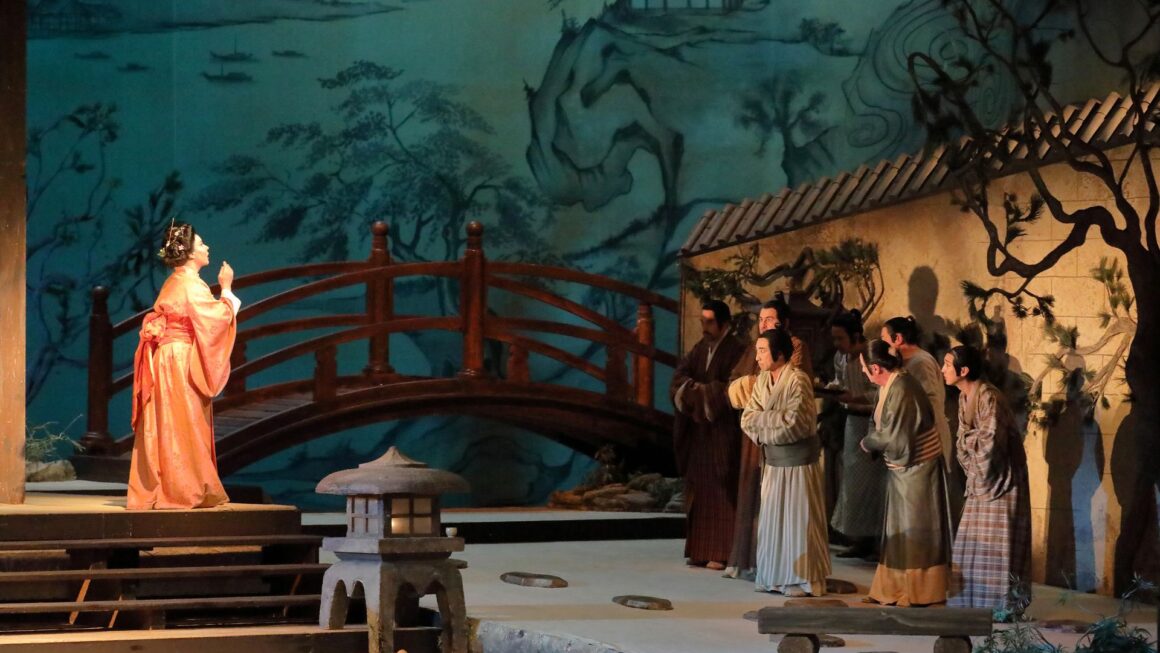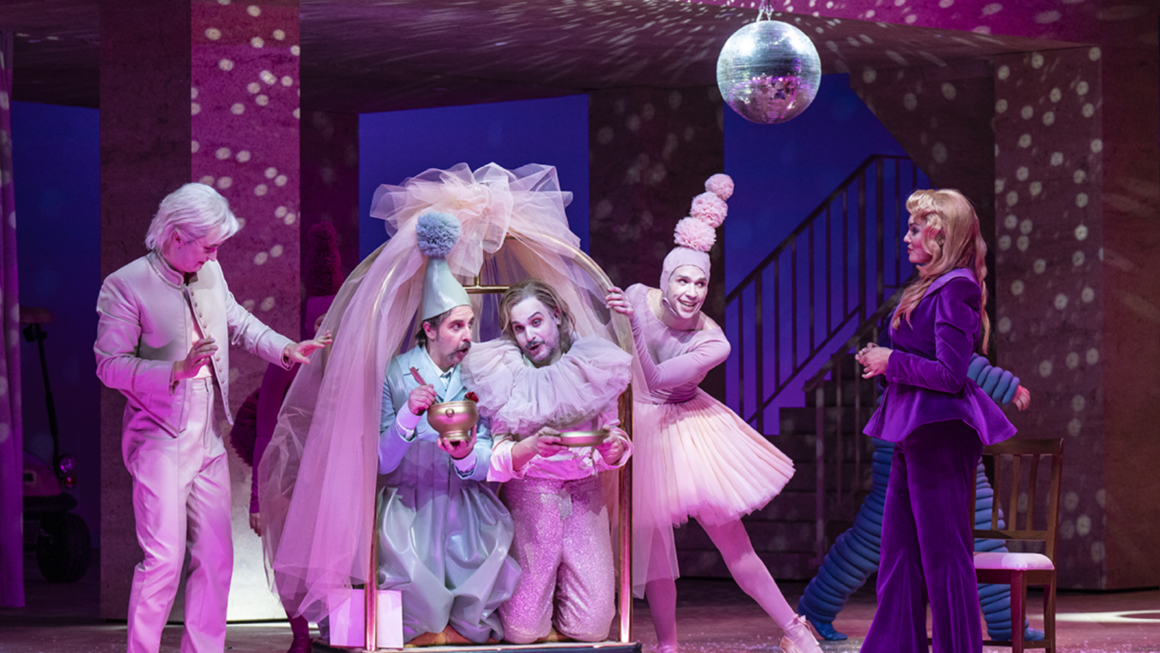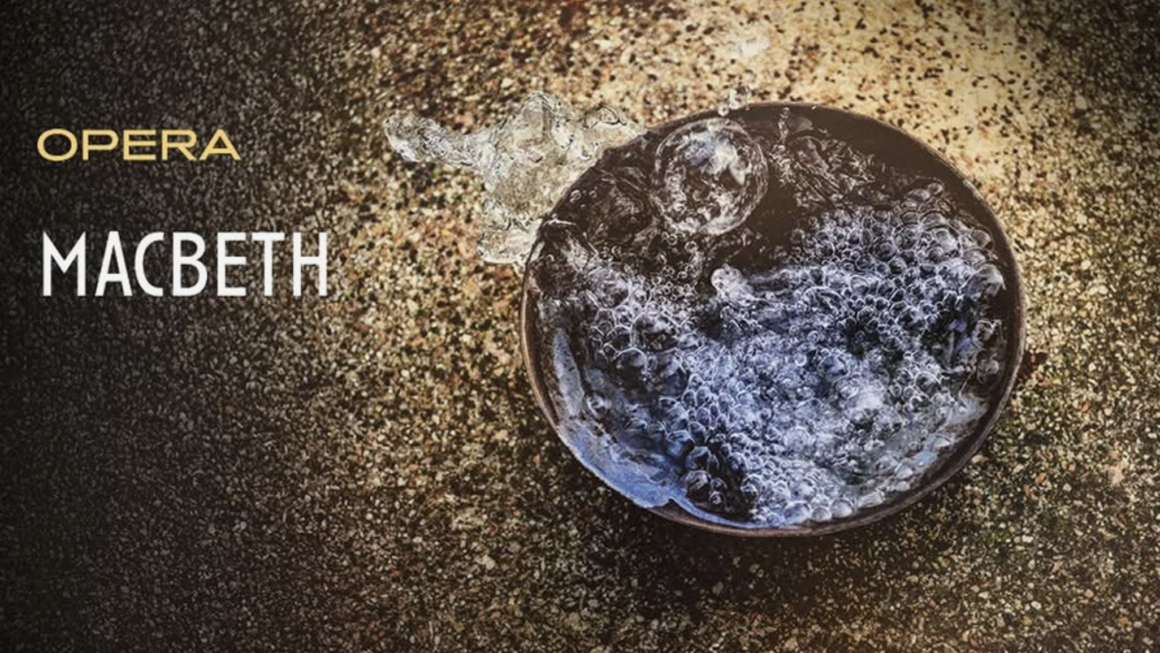Some evenings at the opera redefine your relationship with a composer’s work—and May 24 at the Deutsche Oper Berlin was exactly that. Les Vêpres Siciliennes may often be considered the lesser-known sibling among Verdi’s grand operas—overshadowed by the monumental Don Carlo, the thunderous Otello, or the gripping Forza del Destino—but last Saturday’s performance firmly placed it among my top five Verdi masterpieces. Presented in its original French version, the opera unfolded like a rediscovered gem: polished, powerful, and profoundly moving.
Let’s begin by acknowledging the home of this revelation: the Deutsche Oper Berlin. Opened in 1912 as the Deutsches Opernhaus in Charlottenburg, the theatre was rebuilt after World War II and reopened in 1961. It is now one of the largest opera houses in Germany and home to a rich tradition of bold productions and vocal excellence. Its modernist façade hides a deeply passionate artistic soul—a space where tradition and reinvention meet harmoniously.
And on this evening, it all came together in a perfect storm of musical brilliance.
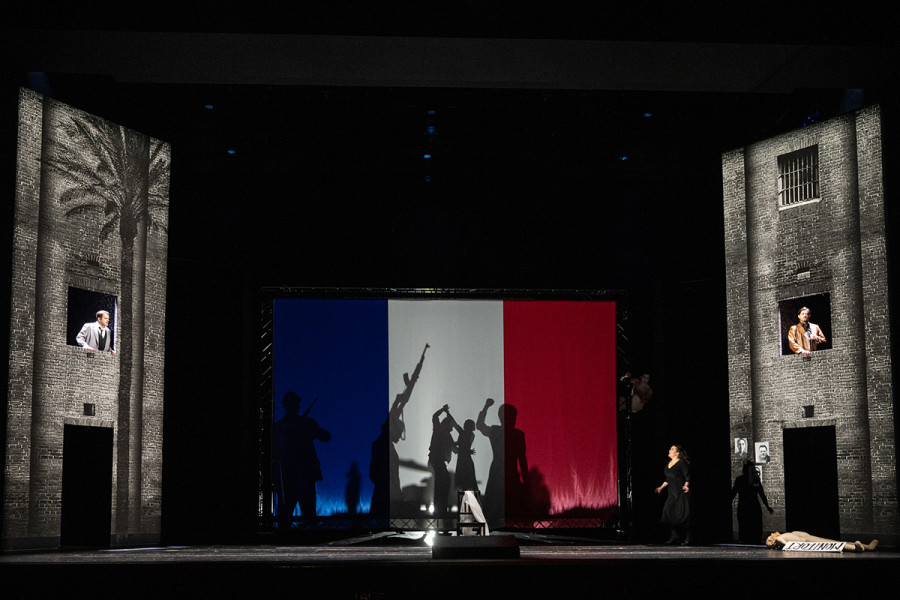
I had already been impressed by soprano Hulkar Sabirova during a previous visit to the Opéra de Lyon for La Forza Del Destino, and she once again proved herself to be an extraordinary Verdian interpreter. Her control, stage presence, and effortless phrasing created a character both powerful and vulnerable. Whether delivering soaring arias or intimate duets, she remained magnetic throughout.
Sharing the stage with her was Valentyn Dytiuk, whose performance grew increasingly captivating as the opera progressed. His youthful energy and expressive phrasing were evident, though perhaps a little less reliance on eye contact with conductor Dominic Limburg would have allowed for greater dramatic immersion. Still, Dytiuk’s voice hints at a future rich with Belcanto potential, as Edgardo for Lucia Di Lammermoor for exemple ?
And speaking of Maestro Limburg: what a triumph. Conducting Les Vêpres Siciliennes—with its sprawling scope, mood shifts, and complex orchestration—is no small feat. Yet Limburg led the orchestra with a sense of sweep and precision that elevated the entire production. His attention to detail and pacing were exquisite. In fact, I left the theatre convinced I must now hear his Otello.
Special praise is also due to Roberto Tagliavini. The Italian bass-baritone delivered a deeply affecting “Ô toi, Palerme,” full of pathos and quiet nobility. His stage presence is commanding, and his voice pulls focus not with volume, but with emotional gravity. It’s a rare skill, and Tagliavini owns it.
Lastly, a special mention goes to baritone Dong-Hwan Lee—what a discovery! As a lover of Verdian baritones, I couldn’t help but be struck by echoes of Ludovic Tézier in his phrasing and tone. This is a singer I hope to hear again soon.
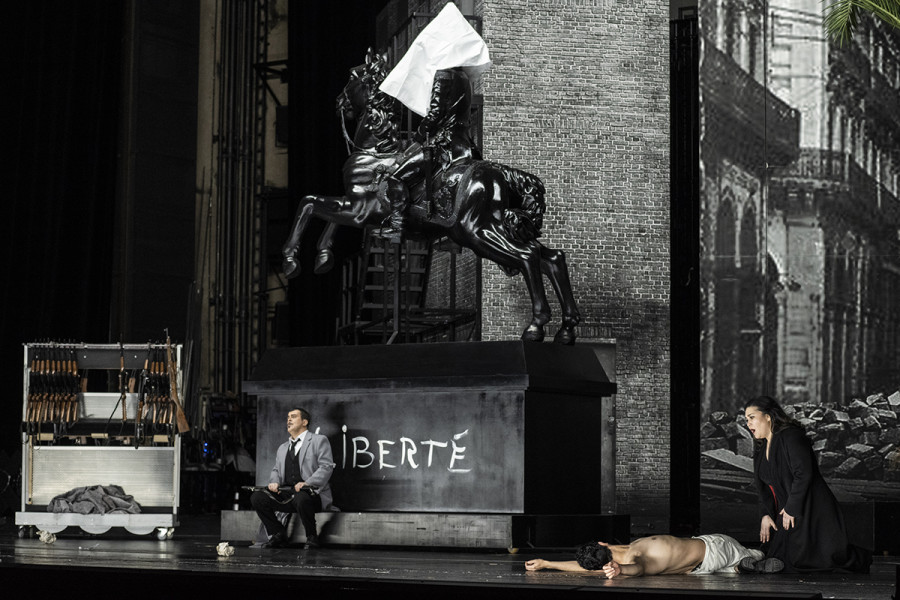
Musically, Les Vêpres Siciliennes has it all: a spectacular overture, show-stopping arias for soprano, tenor, and baritone, impassioned duets, scenes of vengeance and love, even a ballet. And this production, with its superb cast and thoughtful direction, made it clear why this opera deserves a more prominent place in the standard repertory.
Thanks to nights like these, Verdi’s brilliance is not just reaffirmed—it’s re-illuminated. I left the theatre full of joy, and more in love with opera than ever before.
I can’t wait to return in two weeks for Carmen, Andrea Chénier, Rigoletto, and La Traviata. But Les Vêpres Siciliennes? That was something else entirely.
Viva Verdi, per siempre !
Pictures : Marcus Lieberenz
CAST
Hélène
Hulkar Sabirova
Ninetta
Arianna Manganello
Henri
Valentyn Dytiuk
Guy de Montfort
Dong-Hwan Lee
Jean de Procida
Roberto Tagliavini
Thibault
Chance Jonas-O’Toole
Danieli
Gideon Poppe
Mainfroid
Jörg Schörner
Robert
Joel Allison
Le Sire de Béthune
Gerard Farreras
Le Comte de Vaudemont
Jared Werlein
